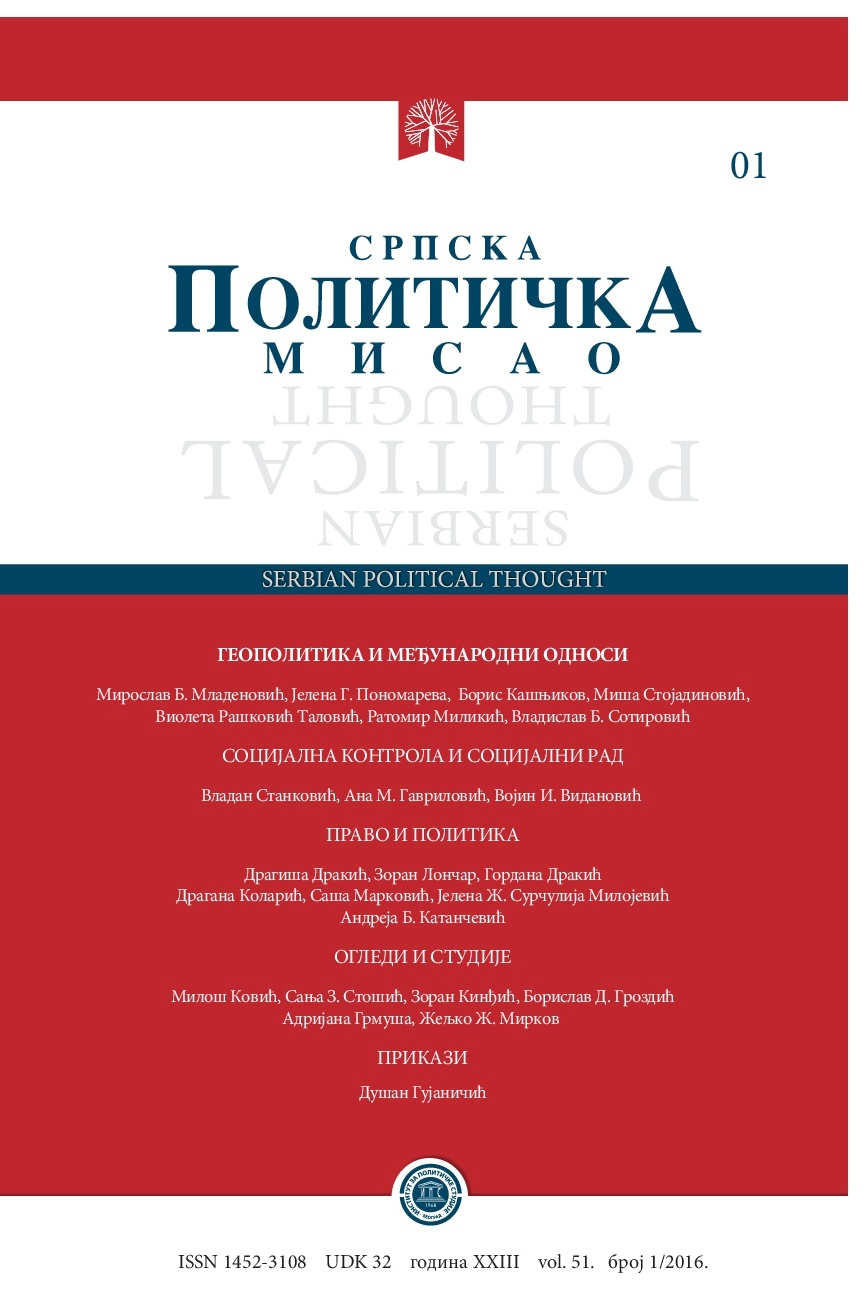Russia’s Balkan Politics: From the Politics of Pan-Slavic Reciprocity of the Tsarist Russia to the “Realpolitik” of the Republic of Gazprom Russia
Russia’s Balkan Politics: From the Politics of Pan-Slavic Reciprocity of the Tsarist Russia to the “Realpolitik” of the Republic of Gazprom Russia
Author(s): Vladislav B. SotirovićSubject(s): Political history, Recent History (1900 till today), International relations/trade, Comparative politics, Politics and Identity
Published by: Институт за политичке студије
Keywords: NATO; World Order; Russia; Serbs; Serbia; foreign policy; Balkans; South-East Europe; South-East Slavs; Pan-Slavism; international relations; global politics; Pax Americana;
Summary/Abstract: This article investigates the Russian foreign politics at the region of the Balkan Peninsula after the dissolution of the Soviet Union at the time of the North Atlantic Treaty Organization’s (NATO) World Order in relation to the Pan-Slavic ideals of intra-Slavic solidarity, reciprocity and brotherhood. The particular stresses are put on four main research topics: 1. The Pan-Slavism and Russia; 2. Relations between pro-Western and pro-Orthodox approaches of the Russian national interests on Russia’s domestic political scene; 3. Different attitudes towards the Balkans in Russia; and 4. Historical ties and future perspectives between Russia and the Serbs. A research methodology is based on investigation of the adequate historical sources and studying of the relevant scientific literature on the subject of our research. The main research results of the article show that: 1. historically only (the tsarist) Russia was interested in protection of the Balkan Orthodox Slavs from any foreign power within the framework of the Pan-Slavic ideology of intra-Slavic reciprocity, solidarity and brotherhood; 2. The Balkan Orthodox nations have mostly to thank Russia for their state independence and preservation of national identities; 3. The post-Cold War Russia is only a taycoonized Gazprom Republic having no real intentions, at least until the 2014 Ukrainian crisis, to change the present day NATO’s World Order of Pax Americana; and 4. The Serbs and Serbia became the crucial victims of the post-Cold War perfect partnership in international relations between the West and the Gazprom Republic of Russia.
Journal: Српска политичка мисао
- Issue Year: 2016
- Issue No: 1
- Page Range: 83-109
- Page Count: 27
- Language: English

